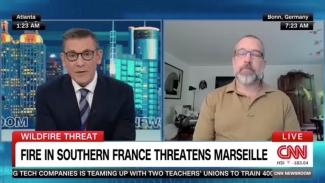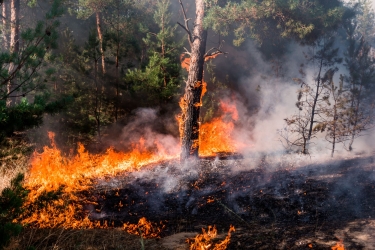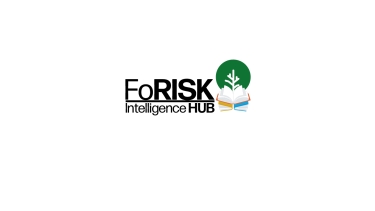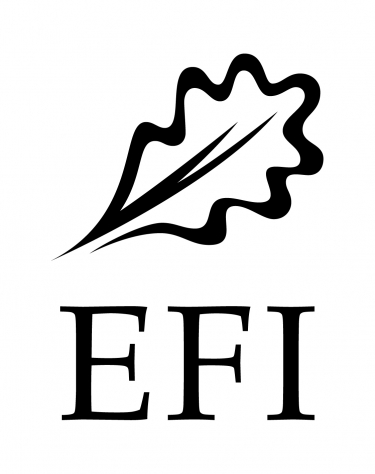Expert voices for urgent action: EFI supports media in the wildfire fight

For the last weeks, hundreds of emergency personnel from the fire brigade, THW (Technical Relief Agency), and the Bundeswehr (German Army) have been battling major wildfires in eastern Germany.
In Thuringia, a fire on the Saalfelder Höhe has been partially contained but remains uncontrolled over an area of about 3 square kilometers. In the Gorischheide region (border of Saxony and Brandenburg), around 10 square kilometers are affected. The fire is particularly difficult to fight due to:
- Munitions contamination on a former military training ground.
- Changing wind directions and flying embers, which complicate firefighting strategies.
- Use of controlled burning and helicopter support from the Bundeswehr and federal police.
Our expert staff, Alexander Held, has been supporting German media coverage in television and radio.
For the daily TV news service Tageschau, he highlighted the urgency of proactive fire management: “It’s not a question of if it will burn, but only when it will burn and under what conditions". He also stressed the need for strategic planning and infrastructure: “We need to develop concepts for defensive fire protection such as water supply systems, sprinkler systems, and irrigation systems — to fight fires indirectly". And finally, also mentioned preventive measures: “Or preventive mowing of meadows and fields. We need to act earlier".
Besides this television interview, Alex was also interviewed for the podcast SWR Aktuell and issued a stark warning about Germany’s and Europe’s preparedness for increasingly frequent and intense wildfires. Drawing on current events and international comparisons, he emphasized the urgent need for proactive, integrated fire prevention strategies.
Alex pointed to Turkey and Greece as examples of regions facing extreme fire behavior, worsened by wind and drought. He noted that Portugal is a standout case, calling it a “living lab” for wildfire prevention due to its shift toward landscape-focused strategies after devastating fires in 2017. “Portugal is one of the few countries that invests at least half of its budget not in reaction, but in prevention".
Alex also stated that the current fires in Saxony, Thuringia, and Brandenburg have exposed systemic weaknesses and warned that what were once considered “extreme weather events” are now regular occurrences, and that firefighting systems are reaching their limits. “These limits must be a wake-up call for us to become proactive".
While acknowledging the value of helicopters and planes, Alex stressed that coordination and timing are more important than simply acquiring more gear. “We need to fine-tune how we use what we have, not just ask for more".
And in a CNN Newsroom interview, Alex was also the guest expert who warned that Europe’s wildfire crisis is escalating beyond the capacity of current firefighting systems. As fires rage across southern France, Germany, and other parts of Europe climate change is intensifying both droughts and rainfall, creating volatile conditions for wildfires. As he said, “Poland is flooding now and Germany is on fire”.
He also explained that the atmosphere’s increased capacity to hold moisture not only leads to heavier rainfall but also extracts more moisture from vegetation, worsening droughts and making landscapes more flammable.
Wildfires in Europe have already scorched over 200.000 hectares this year, a sharp rise from the same period last year. Alex noted a “crystal clear trend”: more fires, in new regions, burning faster and more destructively: “We have fires in new areas like Northern and Central Europe, and bigger, faster, more uncontrollable fires”. This is why one of the main lessons with the current fires is that the global strategy of fire suppression is failing, and he concluded that “we know it’s not a question of if there will be a fire; but only how and when. The only question is: how do you like your smoke?”.


